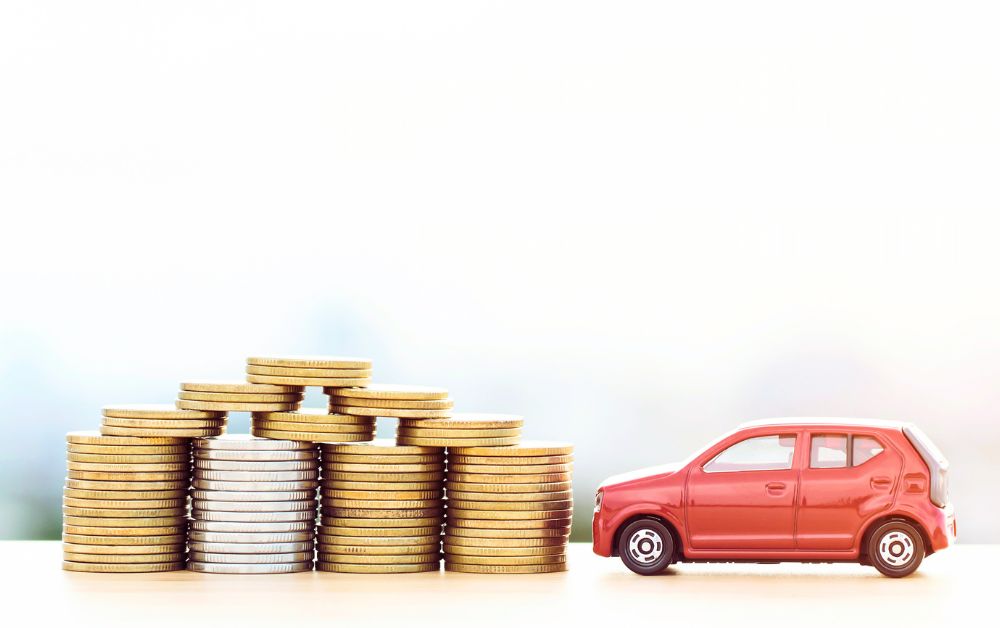Is It Cheaper to Lease a Car Than Buy One?

In the world of automotive finance, the decision to lease or buy a car is a common dilemma. Many factors come into play when making this choice, including your financial situation, driving habits, and personal preferences. In this comprehensive guide, we will delve into the question, “Is it cheaper to lease a car than buy one?” We’ll explore the pros and cons of both options, shedding light on the factors that can help you make an informed decision.
Understanding Car Leasing
Car leasing, often touted as an attractive alternative to buying, allows you to essentially “rent” a vehicle for a predetermined period, typically 2 to 3 years. During this time, you make monthly payments to the leasing company. But how does it work, and what makes it different from buying?
1. How Leasing Works
Leasing involves paying for the depreciation of the car during the lease term, plus interest and fees. Here’s a simplified breakdown:
- Monthly Payments: These cover the depreciation of the vehicle, interest charges, and any fees. Leasing payments are generally lower than loan payments for the same car.
- Mileage Limitations: Leases come with mileage restrictions, often around 10,000 to 15,000 miles per year. Exceeding these limits can result in additional charges.
- End-of-Lease Options: When the lease term ends, you can typically choose to buy the car at a predetermined price (residual value), lease a new car, or simply return the vehicle and walk away.
2. Pros of Leasing
- Lower Monthly Payments: As mentioned earlier, leasing often offers lower monthly payments compared to buying the same vehicle.
- Warranty Coverage: New cars leased are usually under warranty throughout the lease term, reducing maintenance costs.
- Enjoying Newer Models: Leasing allows you to drive a new car every few years, keeping you up-to-date with the latest automotive technology and safety features.
3. Cons of Leasing
- Mileage Restrictions: If you have a long commute or frequently take road trips, the mileage limitations of a lease may not suit your needs.
- No Ownership: At the end of the lease, you don’t own the car, and you’ll have to lease or buy a new one if you want to continue driving.
- Potential Fees: Excess wear and tear or damage to the vehicle may result in additional charges at the end of the lease.
The Economics of Buying a Car
Now that we’ve explored the basics of leasing, let’s take a closer look at buying a car. When you buy a car, you either pay for it in full upfront or finance it with a loan.
1. Buying with Cash
If you can afford to buy a car outright with cash, you’ll avoid any interest charges associated with loans or leases. You have full ownership of the vehicle, which means no mileage restrictions, and you can customize or sell it at any time. However, paying with cash ties up a significant amount of capital that could be invested elsewhere.
2. Buying with a Loan
Most people opt for auto loans to buy a car. With a loan, you make monthly payments over a set period, typically 3 to 7 years. You build equity in the car as you pay down the loan, and once it’s paid off, you own the vehicle outright. Loan payments are generally higher than lease payments, but they contribute to ownership.
3. Pros of Buying
- Ownership: Buying a car gives you full ownership, allowing you to keep it for as long as you like.
- No Mileage Restrictions: There are no mileage limitations, so you’re free to drive as much as you want.
- Long-Term Savings: Over time, buying can be more cost-effective than leasing, especially if you keep the car for many years after the loan is paid off.
4. Cons of Buying
Higher Monthly Payments: Loan payments are often higher than lease payments for the same vehicle.
Depreciation: Cars lose value over time, and when you buy, you bear the full brunt of depreciation.
Maintenance Costs: As your car ages, maintenance and repair costs can increase.
Comparing Costs
To determine whether it’s cheaper to lease or buy a car, you need to consider various cost factors over the long term.
1. Short-Term Costs
Leasing typically results in lower initial and monthly costs, making it more appealing in the short term. Buying often requires a larger upfront payment and higher monthly loan payments.
2. Long-Term Costs
Leasing can become more expensive over time if you continually lease new cars. Buying can be more cost-effective in the long run, especially once the loan is paid off.
3. Depreciation
One of the biggest factors in this comparison is depreciation. Leasing shields you from significant depreciation costs, while buyers bear the full brunt. The rate of depreciation varies by make and model, so researching the depreciation history of your chosen vehicle is essential.
When Leasing Makes Sense
Leasing may be the right choice for certain situations and individuals.
1. Leasing Scenarios
If you prefer driving a new car every few years and are not concerned with long-term ownership, leasing can be advantageous. Business owners may find leasing beneficial, as it can offer tax advantages and help maintain a professional image with new vehicles.
2. Low Mileage Drivers
If you have a short commute or don’t drive much, leasing’s mileage restrictions may not pose a problem. Leasing can be cost-effective for those who stay well below the mileage limits.
When Buying Makes Sense
Buying a car is often the preferred choice for specific individuals and circumstances.
1. Long-Term Ownership
If you plan to keep a car for many years, buying can be more cost-effective in the long run. As the car ages and the loan is paid off, your expenses decrease significantly.
2. High Mileage Drivers
If you have a long daily commute or frequently travel long distances, buying a car with no mileage restrictions is a better fit. Excessive mileage charges from leasing can add up quickly for high mileage drivers.
Conclusion
In the debate of whether it’s cheaper to lease a car than buy one, there’s no one-size-fits-all answer. Your decision should align with your financial situation, driving habits, and personal preferences. Leasing offers lower short-term costs, the joy of driving a new car every few years, and protection from depreciation. It’s ideal for those who prefer low monthly payments and aren’t concerned with long-term ownership.
Buying, on the other hand, provides the satisfaction of full ownership, no mileage restrictions, and long-term cost savings. It’s the right choice for those who plan to keep their cars for many years and don’t mind higher initial and monthly expenses. Ultimately, your decision should reflect your unique circumstances and priorities. Whether you choose to lease or buy, Car News World is here to provide you with the latest car news, reviews, and information to help you make informed choices in the exciting world of automobiles.
Lorem ipsum dolor sit amet, consectetur adipiscing elit. Ut elit tellus, luctus nec ullamcorper mattis, pulvinar dapibus leo.
Related Articles

What Is Needed For Car Loan Eligibility?
In this comprehensive guide, we delve deep into the intricacies of car loan eligibility, equipping you with the knowledge and tools necessary to unlock the doors to your desired vehicle. From understanding the key factors that influence eligibility to practical steps for improvement, join us as we demystify the world of car loans and empower you to make informed decisions on your path to car ownership.

Exploring Factors and Solutions For Why Car Loan Rates Are So High
Let us dissect the intricate factors contributing to elevated car loan rates in this blog, also offering insights into the role of credit scores, economic dynamics, loan terms, market competition, and vehicle depreciation.

How Do Car Interest Rates Work?
With the soaring prices of vehicles, financing has become a common route for many to afford their dream cars. However, before delving into the world of car loans, it’s crucial to understand how interest rates play a pivotal role in shaping your financial commitments.

How Car Loans Works: Understanding the Mechanics
In the world of automotive dreams, the quest for that perfect car often leads us to explore the realm of car loans. Whether you’re eyeing a sleek sedan, a rugged SUV, or a sporty convertible, understanding how car loans work is paramount to navigating the journey towards owning your dream ride.




